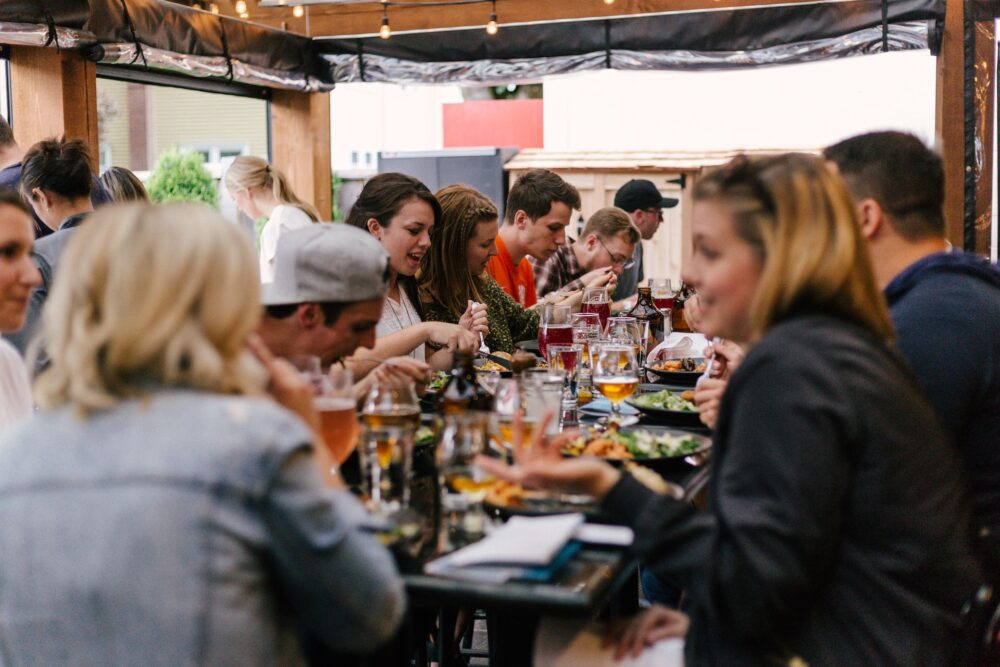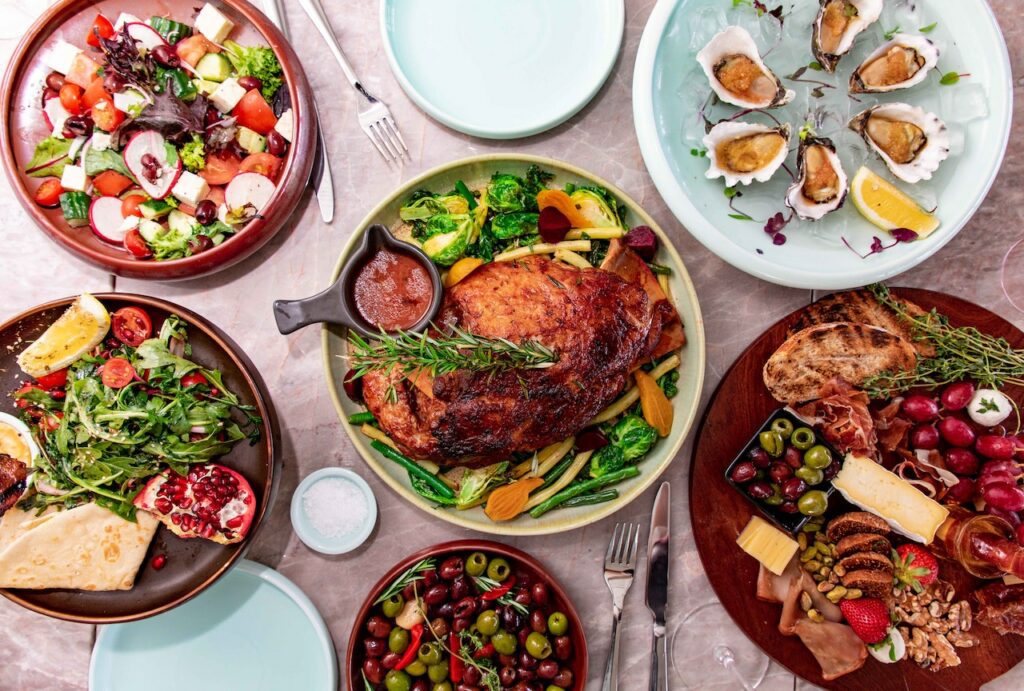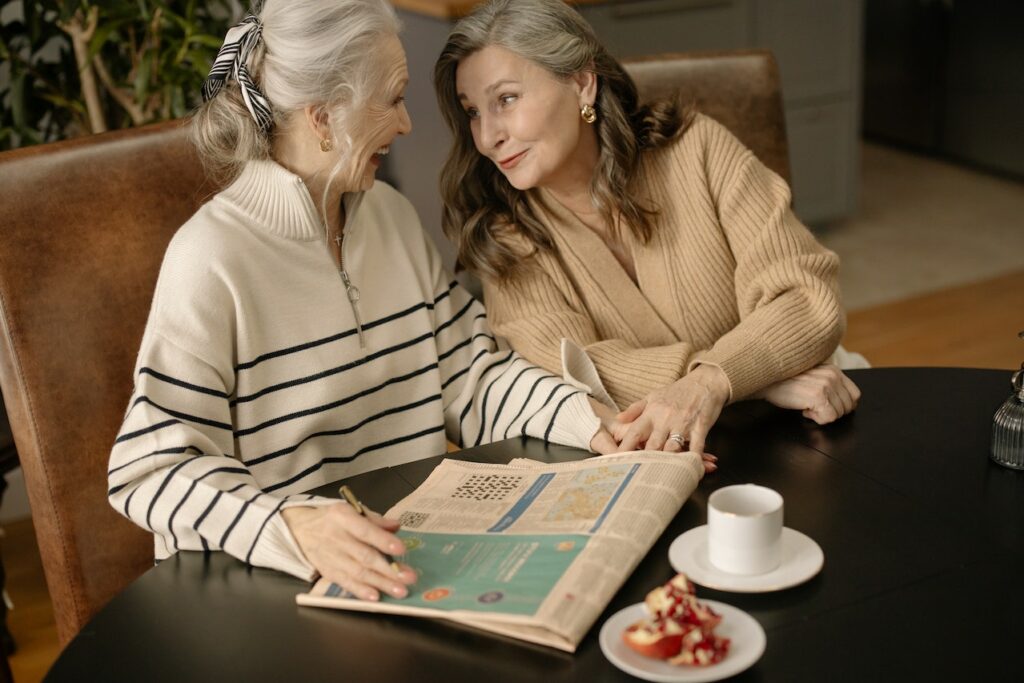In 2023, our schedules are busier than ever, and that’s a fact. We have so little time and energy for personal relationships and other life priorities we forget to smile, right?
Technology, rapid pleasures, and achievement pressure make combining professional, social, and personal lives hard. This may lead to burnout, stress, and detachment from the things and people that matter most.
However, according to mindfulness experts, relationships are essential to a meaningful existence. Mindfulness means being present at the moment, paying attention to our thoughts, emotions, and experiences, and deepening our awareness and connection with others.
Prioritizing relationships means being present and attentive while with loved ones. This entails ignoring work and technology and concentrating on the people before us. This strengthens our connections and brings numerous advantages.
Strong connections reduce stress, improve mental health, and increase life quality. We end up feeling more connected to a community, and that’s crucial because it’s human nature. Relationships also assist us in overcoming tough times by providing support and comfort.
Prioritizing relationships in a mindful way is the key to building healthy and helpful connections. With that in mind, let’s explore the best ways we can improve relationships in this day and age!

Choosing Quality Over Quantity
Maintaining healthy connections and happy life requires prioritizing time with family and friends. This involves choosing your loved ones rather than other activities.
Schedule regular, recurrent time with family and friends. This may be a weekly family meal, a monthly friend gathering, or any other recurrent event that gives us frequent face-to-face contact with loved ones. By arranging this time in advance, we are more likely to attend.
We may also emphasize family and friend time by being totally present and engaged. This means ignoring work and technology and concentrating on the people in front of us. This strengthens our relationships and enriches everyone’s experience. Playing games, going out, or simply talking deep topics may help you create this habit.
Lastly, even while we’re apart, we should keep in touch with family and friends. This might be texting, video conferencing, or just keeping in touch. This keeps us connected even though we’re far apart.
Communication
Strong relationships need good communication. It entails staying in contact with loved ones, exchanging experiences and updates, and trying to remain connected despite the distance.
Communication needs active listening and expression. This requires listening and comprehending others’ viewpoints. It also means speaking simply and honestly without judgment or defense.
It’s also important to be aware of our social relationships. This involves avoiding criticism, having constructive talks, and exhibiting sensitivity and understanding. This strengthens and enriches our connections.
Lastly, we must communicate openly and flexibly. This means listening to others, even when their opinions vary from ours, and being open to adjusting our thoughts and actions based on their criticism. This lets us connect with others more deeply.
Self-Care
Self-care is key to healthy relationships and happy life. It means taking care of our physical, mental, and emotional health and finding time for things that feed us.
For example, self-care can mean promoting physical health. Exercise, a balanced diet, and proper sleep may help you become a better person in relationships with others. Physical health care boosts energy, attitude, and life skills.
Self-care also includes mental and emotional health. Meditation, yoga, and nature may offer us pleasure and tranquility. Therapy or support groups may also help.
Self-reflection and introspection are equally crucial. Journaling, mindfulness, or silence may help. This helps us understand our ideas, emotions, and actions and improve our relationships.
Gratitude
Gratitude improves relationships and well-being. It is appreciating the beautiful things in our lives and acknowledging the people and situations that offer us pleasure and contentment.
Mindfulness and actively pursuing happy events and relationships are ways to cultivate gratitude. This can be seeing a lovely sunset or a friend’s kindness. Appreciation and positivism may enhance our attitude and relationships.
Gratitude may also be expressed to others. This might be thank-you cards, compliments, or just expressing appreciation for those in our life. This strengthens our connections and makes us feel closer to others.
Reflecting on our blessings is also essential. This might entail maintaining a gratitude notebook, practicing mindfulness, or reflecting on what we’re thankful for daily. This helps us be grateful and positive through tough times.
Being present
Maintaining connections and enjoying life requires presence. It entails being present and totally engaged in our activities and relationships with others.
Reducing distractions and scheduling important activities and encounters helps you be present. Turning off our phones and genuinely connecting with people may be necessary. This strengthens our bonds.
Mindfulness and purposeful thinking, and emotion are alternative ways to be present. This might mean being mindful of our thoughts and feelings and being present. This increases self-awareness and social skills.
Being present in our bodies and environment is also essential. This might entail seeing and appreciating the sights, sounds, and feelings around us and practicing yoga or meditation to be completely present. This helps us find serenity and connect with others.
Photo Credits By UnsplashKindness
Kindness
Kindness strengthens connections. It is being kind to others and doing small actions of charity.
Paying attention to others’ needs and helping when required are gestures of compassion. This might be helping with a chore, encouraging someone, or just being there for someone in need. This strengthens our bonds with others.
Being deliberate with words and deeds is another method to exhibit compassion. This may mean being conscious of our language and treating people with respect and compassion. This creates a good, supportive atmosphere and improves our connections.
Random acts of kindness like buying someone’s coffee, leaving a good note, or sharing pleasure and optimism are extremely important. This improves the world and our relationships. Whether it’s a thank-you note, a smile, or wishing the cashier to have a good day at work, small things make a huge difference. If you’re a parent, teaching your kids this important lesson will definitely enhance the benefits of such a simple habit. The best part? It’s free!
Conclusion
Our relationship-prioritizing blog article is over. I hope you liked reading it as much as I did create it! I’ll summarize the main points and urge you to use them before we separate.
First and foremost, connections are vital to our well-being and pleasure. They provide us with love, support, and belonging. That’s why we must prioritize them.
Make time for loved ones to emphasize relationships. This may include frequent phone conversations, weekly dinner dates, or just making an effort to spend more quality time together. Practice active listening as it shows respect and worth. This strengthens partnerships.
Being present, grateful, honest, vulnerable, and forgiving are some ways to value relationships.
Prioritizing relationships requires intentional effort. It’s easy to overlook loved ones due to busyness. By investing in them, we may build more profound, more meaningful relationships that improve our lives.
Therefore, Americans put these recommendations into practice and prioritize their relationships. Invest in your family, friends, and love relationships. Show love and watch your connections grow!
You might also like: How Can Mindfulness Improve Your Love Life?










